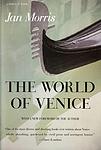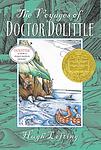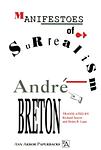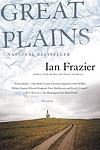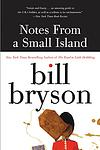The Greatest "Travel" Books of All Time
Click to learn how this list is calculated.
This list represents a comprehensive and trusted collection of the greatest books. Developed through a specialized algorithm, it brings together 300 'best of' book lists to form a definitive guide to the world's most acclaimed books. For those interested in how these books are chosen, additional details can be found on the rankings page.
Genres
The "Travel" category of books encompasses a wide range of literature that focuses on exploring new places, cultures, and experiences. These books can be memoirs, guidebooks, travelogues, or even fiction that takes the reader on a journey to a different part of the world. The genre is characterized by its emphasis on adventure, discovery, and personal growth, as well as its ability to transport readers to far-off lands and immerse them in new and exciting cultures. Whether you're looking for inspiration for your next trip or simply want to explore the world from the comfort of your own home, the Travel category has something for everyone.
Countries
Date Range
Reading Statistics
Click the button below to see how many of these books you've read!
Download
If you're interested in downloading this list as a CSV file for use in a spreadsheet application, you can easily do so by clicking the button below. Please note that to ensure a manageable file size and faster download, the CSV will include details for only the first 500 books.
Download-
26. The Narrow Road to the Deep North by Matsuo Bashō
"The Narrow Road to the Deep North" is a travelogue that depicts the author's journey through the remote and desolate northern regions of Japan. The narrative combines prose and haiku poetry to capture the beauty and spirituality of nature, as well as the author's introspective thoughts and philosophical insights. The journey is not just physical but also spiritual, as the author seeks to understand his place in the world and the essence of the human condition.
-
27. Down and Out in Paris and London by George Orwell
This book is a semi-autobiographical work that explores the harsh realities of poverty in two of Europe's most renowned cities. The protagonist, a struggling writer, first experiences the squalor, hardship, and vagabond lifestyle of Paris, where he works menial jobs and often goes hungry. The narrative then shifts to London, where the protagonist lives as a tramp, navigating the oppressive rules of homeless shelters and the stigma of poverty. The book is a deeply empathetic and insightful exploration of the often invisible world of the impoverished.
-
28. The Rings of Saturn by W. G. Sebald
"The Rings of Saturn" is a richly detailed travelogue that follows the narrator's journey along the coast of Suffolk, England. The narrative weaves together history, literature, and personal anecdotes, exploring topics as diverse as the decline of the herring industry, the horrors of colonialism in the Congo, and the life of philosopher Sir Thomas Browne. The book is characterized by its melancholic tone, its digressive style, and its meditative reflections on memory, time, and decay.
-
29. The Voyage of the Beagle by Charles Darwin
This book is a vivid and exciting travel memoir as well as a detailed scientific field journal covering biology, geology, and anthropology that demonstrates the author’s keen powers of observation, written at a time when Western Europeans were still discovering and exploring much of the rest of the world. The author's five-year journey took him from the coasts of South America, Australia, and Africa to the South Pacific islands, during which he collected and documented the natural history of these areas. The voyage and the specimens he brought back would later form the basis for his famous theory of evolution.
-
30. The Great Railway Bazaar by Paul Theroux
"The Great Railway Bazaar" is a travelogue in which the author embarks on a four-month journey by train from London through Europe, the Middle East, the Indian subcontinent, Southeast Asia, and Siberia, and then back to Europe. The book is a vivid and insightful account of the people, cultures, landscapes, and experiences encountered during the journey, painting a unique picture of the world as seen from the perspective of a train window. The author's sharp observations and engaging storytelling make this journey as much an inner exploration as a geographical one.
-
31. A Sentimental Journey Through France and Italy by Laurence Sterne
This novel follows the travels of a charming and sensitive man, who journeys through France and Italy, engaging in philosophical debates, falling in and out of love, and experiencing a variety of comedic misadventures. Along the way, he encounters a diverse array of characters, each with their own unique stories and perspectives. The novel is a humorous and satirical critique of travel literature of the time, with a focus on the human condition and the nature of sentimentalism.
-
32. Christ Stopped at Eboli: The Story of a Year by Carlo Levi
The book is a memoir about the author's year of exile in a remote region of southern Italy during the fascist regime. It depicts the harsh living conditions, poverty, and backwardness of the area, where the peasants' lives are ruled by superstition and tradition. Despite the difficulties, the author finds beauty and dignity in the people and their way of life, and he paints a vivid picture of their culture, beliefs, and struggles. The title refers to the locals' belief that they have been forgotten by modernity and even by God.
-
33. Vathek by William Beckford
This gothic novel follows the story of Vathek, a cruel and decadent ninth-century Caliph who, driven by his insatiable quest for knowledge and power, makes a pact with the devil, Iblis. In exchange for unlimited power, Vathek promises to sacrifice his children. The narrative takes a dark turn as Vathek descends into a hell of his own making, filled with torment and regret, ultimately leading to his downfall. The novel explores themes of ambition, morality, and the destructive potential of unregulated power.
-
34. Venice by Jan Morris
This book provides an in-depth exploration of the city of Venice, delving into its history, culture, architecture, and its unique geographical attributes. It paints a vivid picture of the city in its glory days, as well as its present state, with all its beauty and decay. The author's personal experiences and observations are woven into the narrative, offering readers an intimate and engaging tour of the city. The book also discusses the city's influence on art, literature, and music, and its enduring allure for travelers from around the world.
-
35. Blue Highways: A Journey into America by William Least Heat-Moon
This travel memoir follows the author's journey through the backroads of the United States, which he refers to as "Blue Highways" on maps. After losing his job and separating from his wife, he embarks on a 14,000-mile trip, steering clear of cities and interstates to explore small towns and meet their inhabitants. The narrative offers a poignant and introspective exploration of America's landscapes, history, and diverse cultures, providing a unique perspective on the country's lesser-known regions.
-
36. A Supposedly Fun Thing I'll Never Do Again by David Foster Wallace
"A Supposedly Fun Thing I'll Never Do Again" is a collection of seven essays that blends humor, insight, and philosophical pondering. The author explores a wide range of topics, from the impact of television on contemporary literature to the despair of the American cruise industry, and even the nature of David Lynch's films. The book is a brilliant showcase of the author's unique ability to see the extraordinary in the ordinary, all while using his sharp wit and expansive intellect to explore the complexities of modern life.
-
37. The Towers Of Trebizond by Rose Macauley
"The Towers of Trebizond" is a humorous and thought-provoking novel that follows the journey of a young woman and her eccentric aunt as they embark on a trip to Turkey. Through their adventures and encounters with various characters, the book explores themes of religion, love, and the clash between tradition and modernity. With its witty narration and insightful observations, the novel offers a captivating exploration of faith and identity.
-
38. Haroun and the Sea of Stories by Salman Rushdie
The book is a fantastical children's novel that explores the importance of storytelling. It follows the journey of a young boy named Haroun who sets out on a magical adventure to restore his father's ability to tell stories. Along the way, he encounters a vast array of colorful characters and strange lands, including a Sea of Stories. The narrative addresses themes of censorship, the power of storytelling, and the struggle between light and darkness.
-
39. Daisy Miller by Henry James
"Daisy Miller" is a novella that explores the social differences between American and European society in the late 19th century. The story follows a young, affluent American woman named Daisy Miller, who defies societal norms while traveling in Europe. Her flirtatious behavior and disregard for European customs create a scandal among the upper-class expatriate community, particularly catching the attention of a young American man who is both attracted to and repulsed by her nonconformity. Ultimately, Daisy's refusal to conform to societal expectations leads to her downfall.
-
40. My First Summer in the Sierra by John Muir
This book is a personal narrative of the author's journey through the Sierra Nevada Mountains in California during the summer. The author, a naturalist, describes in detail the stunning landscapes, flora, and fauna he encounters during his exploration. His deep appreciation for nature and wilderness is evident in his vivid descriptions and philosophical reflections. The book serves as a call to preserve and respect the natural beauty of the environment.
-
41. The Natural History and Antiquities of Selborne by Gilbert White
"The Natural History and Antiquities of Selborne" is an exploration of the natural world in the English village of Selborne. The author, through a series of letters, provides detailed observations and insights into the flora, fauna, weather and geology of the area. The book also sheds light on the history and antiquities of the village, offering a comprehensive view of Selborne during the 18th century.
-
42. Pilgrimage by Dorothy Richardson
"Pilgrimage" is a sequence of semi-autobiographical novels that follow the life of the protagonist, Miriam Henderson, through her journey of self-discovery in the late 19th and early 20th centuries. The narrative explores Miriam's experiences, thoughts, and feelings, as she navigates through her life, dealing with issues of feminism, love, and social expectations. The book is notable for its stream of consciousness writing style, which allows readers to experience Miriam's inner world in a profound and intimate way.
-
43. Into the Wild by Jon Krakauer
This striking narrative non-fiction tells the real-life story of a young man who turns his back on society to live in the Alaskan wilderness. Despite a privileged background and a promising future, he donates his savings to charity, abandons his car and most of his possessions, and embarks on a journey into the wild. His solitary existence in the wild, his struggles for survival, and his untimely death provide a profound exploration of the allure of wilderness and the human yearning for solitude and self-discovery.
-
44. Seven Years in Tibet by Heinrich Harrer
This book is a travel memoir that recounts the author's escape from a British internment camp in India during World War II and his subsequent journey through the Himalayas to Tibet, where he becomes a tutor and friend to the Dalai Lama. The book provides a detailed account of Tibetan culture, customs, and the political turmoil leading up to the Chinese invasion, as seen through the eyes of a foreigner who spent seven years living there.
-
45. The River Sutra by Gita Mehta
"The River Sutra" by Gita Mehta is a captivating novel that explores the intertwining lives of various characters along the sacred river Narmada in India. Through vivid storytelling and rich descriptions, the book delves into themes of spirituality, love, and the search for meaning in life. As the characters embark on journeys of self-discovery, the river serves as a powerful metaphor for the flow of life and the interconnectedness of all beings. With its lyrical prose and thought-provoking narrative, "The River Sutra" offers a profound exploration of the human experience and the timeless wisdom of ancient traditions.
-
46. Journals by Meriwether Lewis, William Clark
This book is a compilation of the detailed journals kept by two explorers during their expedition across the American West, from 1804 to 1806. The journals provide a first-hand account of their encounters with Native American tribes, their observations of new plant and animal species, and the challenges they faced while traversing uncharted territories. The explorers' writings not only offer insights into their historic journey but also serve as a valuable resource for understanding early 19th-century American history and the country's westward expansion.
-
47. The Voyages of Doctor Dolittle by Hugh Lofting
The Voyages of Doctor Dolittle follows the eccentric Doctor, who has the unique ability to communicate with animals in their own languages. Accompanied by his young apprentice Tommy Stubbins, the Doctor embarks on a thrilling journey around the world, encountering a host of exciting adventures and interesting creatures. From a giant pink sea-snail to a floating island and a mysterious sea monster, the Doctor uses his special skills to help animals in need and solve mysteries along the way.
-
48. Surrealist Manifesto by André Breton
The Surrealist Manifesto is a groundbreaking work that introduces and defines the surrealist movement in literature and art. The book, written by the founder of the movement, presents the idea that the rational mind represses the power of the imagination, weighting it down with taboos. It argues that the world of dreams and the unconscious should be embraced to enhance creativity, leading to more complete and fulfilling human experience. The book also criticizes traditional societal structures and norms, advocating for revolution and freedom of thought.
-
49. Great Plains by Ian Frazier
"Great Plains" is a travelogue that takes readers on a journey through the vast expanse of the American Great Plains, exploring its history, geography, and culture. The author travels from North Dakota to Texas, delving into the history of Native Americans, pioneers, and outlaws. The book provides a detailed account of the region, its people, and its significance in shaping the American West, offering a vivid portrait of the landscape and its influence on the country's identity.
-
50. Notes from a Small Island by Bill Bryson
This humorous travel memoir features an American author's journey across the United Kingdom, where he had lived for two decades. Before returning to the United States, he decides to tour the country, using public transportation and staying in small-town accommodations. The book provides an amusing, and at times sarcastic, outsider's perspective on British life, culture, and idiosyncrasies, while also expressing a deep affection for the nation and its people.
Reading Statistics
Click the button below to see how many of these books you've read!
Download
If you're interested in downloading this list as a CSV file for use in a spreadsheet application, you can easily do so by clicking the button below. Please note that to ensure a manageable file size and faster download, the CSV will include details for only the first 500 books.
Download







